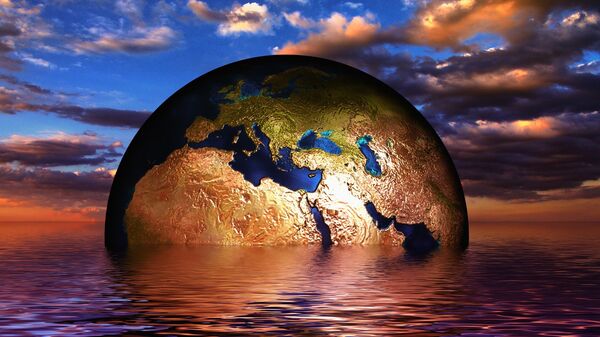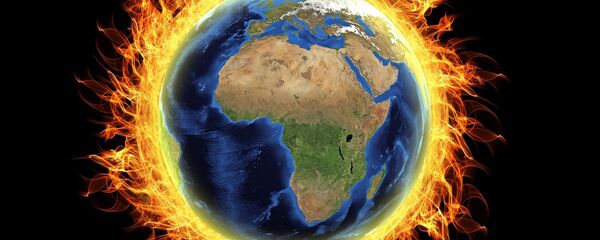"A lot of what we've been learning over the last four years suggests the possibility that things may have been more serious than we think," according to scientist Robert Kopp, who contributed to the report.
Kopp also added that the findings "reaffirmed that climate change is real, that humans are the dominant cause of warming, and that it is having an effect in the US. And those effects will grow more severe as long as we continue to emit carbon dioxide in the atmosphere."
Scientific data reveals that since 1900, the earth's temperature has increased by 1.8 degrees Fahrenheit and average sea levels have risen by eight inches. In addition, wildfires, heat waves and torrential downpours have all increased in frequency due to climate change.
"I'm quite confident to say there's been no political interference in the scientific messages of this report," David Fahey of the National Oceanic and Atmospheric Administration wrote, observing that the report is based on valid scientific data.
Energy Secretary Rick Perry and Environmental Protection Agency chief Scott Pruitt — both Trump appointees — have repeatedly rejected the human contribution to global warming.
However, according to the report, there is a 95-100 percent certainty that global warming is caused by human activity from the burning of fossil fuels, including coal, oil and natural gas.
"Over the last century, there are no convincing alternative explanations," the report stated.
In fact, scientists calculated that the man-made contribution to global warming since 1950 is believed to be between 92 percent and 123 percent.
The 123 percent figure means that the effect of greenhouse gases are even greater than the effect of volcanoes and orbital cycles, which naturally cool the earth's atmosphere.
"This period is now the warmest in the history of modern civilization," study author Katharine Hayhoe said.
"The present day emissions rate of nearly 10 billions tons of carbon per year suggests that there is no climate analog for this century any time in at least the last 50 million years."
According to the authors, the increase in the earth's average atmospheric temperature could slow down the circulation system of the Atlantic Ocean, which would lead in weather changes more overwhelming than El Ninos, and decrease ice sheets in Greenland and Antarctica, which would cause sea levels to rise significantly. The world's oceans are not only becoming warmer, but more acidic and oxygen-deficient. Climate change could exacerbate wildfires and hurricanes.
Although the authors did not reveal when such occurrences might take place, they did note that "there is certainly some chance of some of these things happening."
"Risks range from the inconvenient, such as increasing high tide flooding along the East Coast related to sea level rise to the forced relocation of coastal communities in Alaska and along the Gulf Coast," the report said.
According to Juanita Constible, a special projects director at the Natural Resources Defense Council, "it's essential that our federal leaders in Congress and the Executive Branch take seriously the dire conclusions from the painstaking and authoritative work in the [report] and more importantly, to urgently act on the findings."
Michael Mann, director of the Earth System Science Center at Penn State University, agreed with Constible.
"This new report simply confirms what we already knew. Human-caused climate change isn't just a theory, it's reality. Whether we're talking about unprecedented heat waves, increasingly destructive hurricanes, epic drought and inundation of our coastal cities, the impacts of climate change are no longer subtle. They are upon us. That's the consensus of our best scientists, as laid bare by this latest report," he told the New York Times.
Following the release of the report, the White House posted a statement online saying that "the climate has changed and is always changing. As the Climate Science Special Report states, the magnitude of future climate change depends significantly on ‘remaining uncertainty in the sensitivity of Earth's climate to [greenhouse gas] emissions."



